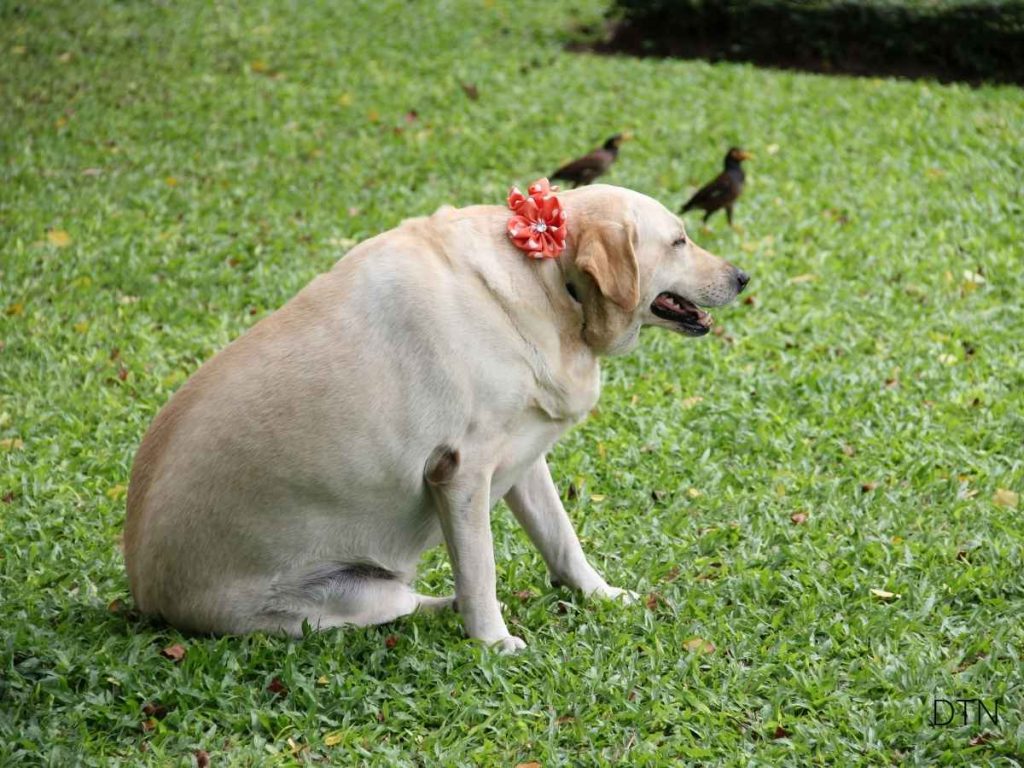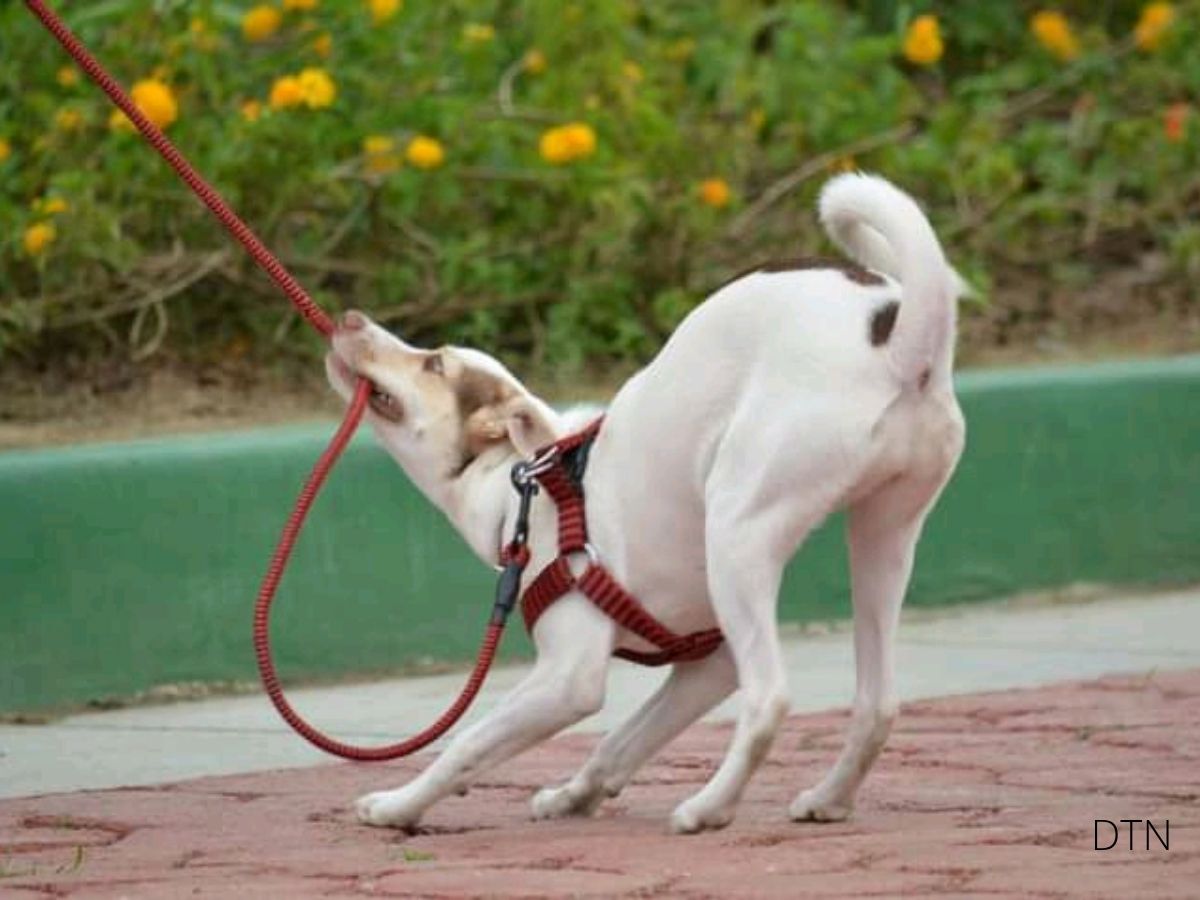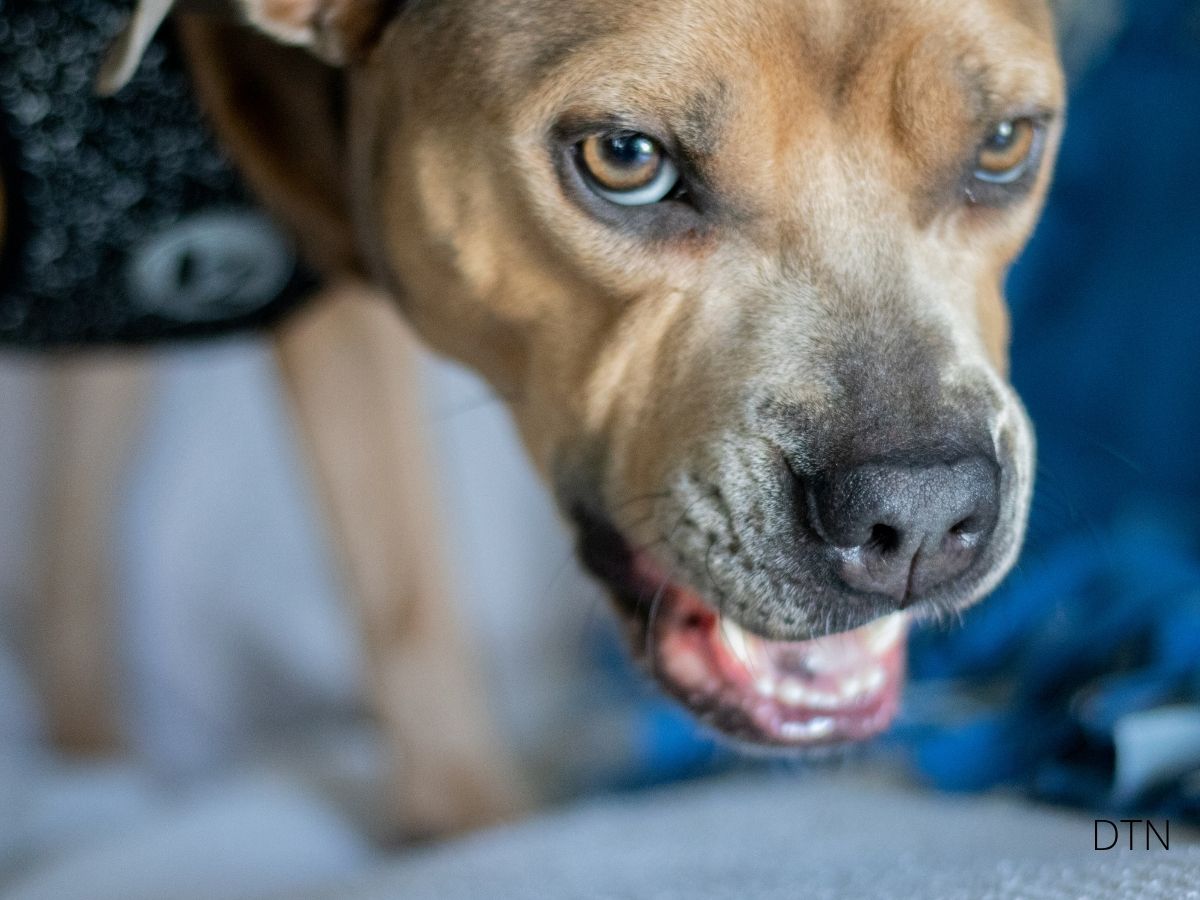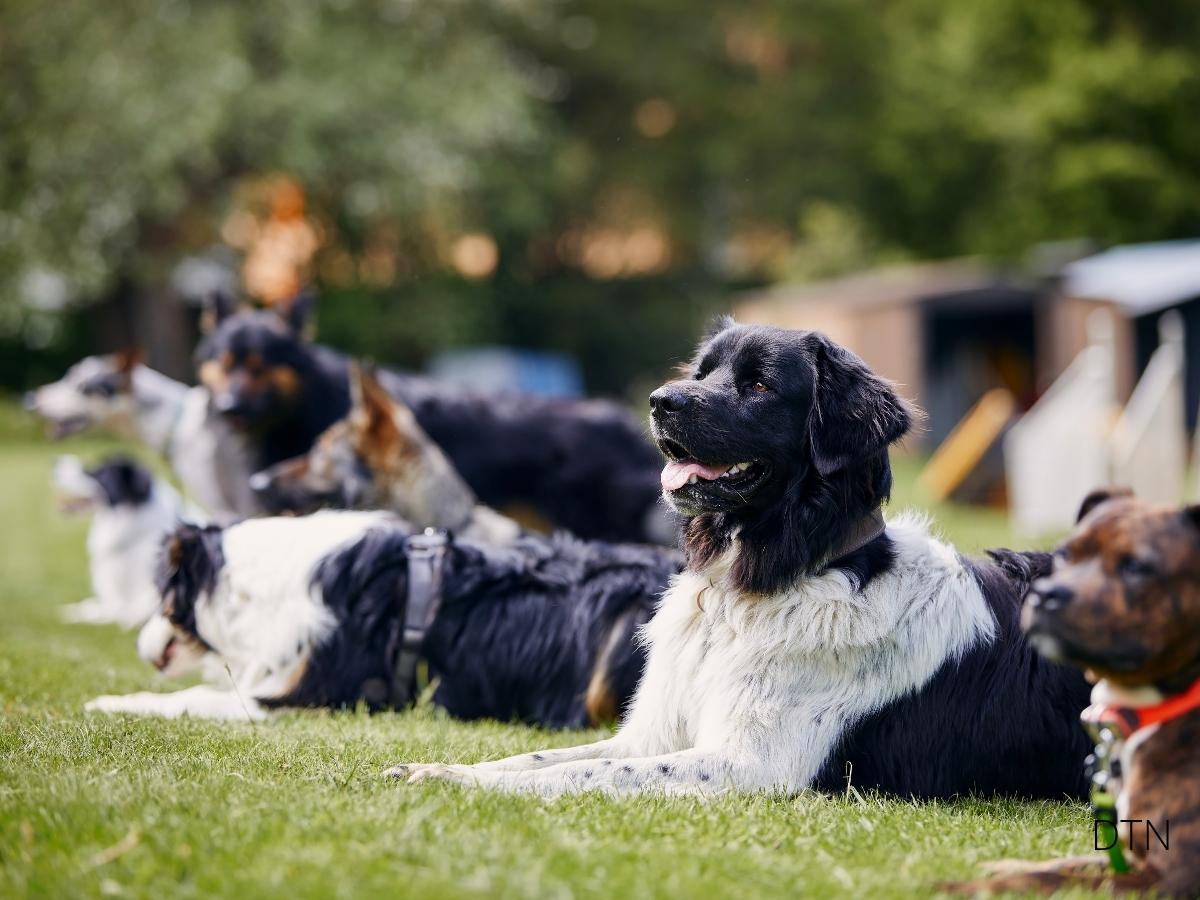Introduction: The Weight Your Dog’s Mind Carries
When we notice our dogs gaining weight, we worry about their joints, heart, and stamina. But did you know those extra pounds might be silently affecting your dog’s ability to think, learn, and emotionally connect with you? The hidden behavioral costs of canine obesity touch every aspect of your dog’s cognitive function—from problem-solving abilities to emotional regulation.
Just as obesity affects human cognition, our furry friends face similar neurological challenges when carrying excess weight. This isn’t simply about being less playful—we’re talking about fundamental changes in how your dog’s brain processes information and manages stress. Let us guide you through understanding these crucial but often overlooked impacts.
How Obesity Rewires Your Dog’s Brain
The Inflammation Connection
You might notice your overweight dog seems less interested in puzzle toys or takes longer to respond to their name. These aren’t signs of laziness—they’re symptoms of genuine neurobiological changes. When excess body fat accumulates, it triggers chronic low-grade inflammation that doesn’t stay confined to the body. This neuroinflammation travels to the central nervous system, creating a constant state of brain irritation that impairs cognitive function.
Key neurological impacts include:
- Insulin resistance in the brain, starving neurons of vital fuel
- Disrupted neurotransmitter balance affecting mood and motivation
- Altered hippocampus function impairing memory formation
- Compromised prefrontal cortex reducing emotional regulation
The gut-brain axis adds another layer—obesity-related gut dysbiosis directly influences neurotransmitter production. Since 95% of serotonin originates in the gut, this disruption profoundly affects your dog’s emotional state and behavioral responses. Your dog’s brain is literally working differently. 🧠
Recognizing Behavioral Changes
Attention and Training Challenges
Have you noticed your dog “zoning out” during training sessions? Obese dogs develop attentional bias, where focus becomes disproportionately drawn to food cues rather than commands. This isn’t defiance—it’s a cognitive struggle similar to trying to concentrate while someone waves your favorite dessert nearby.
Training difficulties manifest as:
- Delayed response times to familiar commands
- Increased need for repetition with new concepts
- Difficulty maintaining focus beyond a few minutes
- Greater susceptibility to environmental distractions
These challenges stem from impaired executive function—the brain’s CEO managing planning, impulse control, and decision-making. When this system is compromised, your dog genuinely struggles to filter irrelevant stimuli and maintain goal-directed behavior.
The Lethargy-Frustration Cycle
Physical discomfort creates a vicious behavioral cycle. Your dog wants to play and explore, but their body won’t cooperate. This disconnect naturally leads to frustration, manifesting as increased vocalization, destructive behaviors, withdrawal from activities, or unexpected irritability.
The metabolic strain also reduces cellular energy production. Your dog isn’t choosing laziness—their mitochondria are literally producing less energy. Combined with impaired cardiac function, this creates genuine exhaustion that amplifies behavioral challenges. That once-clever companion struggling with previously mastered tasks isn’t giving up—they’re facing real cognitive limitations. 🐾
The Stress-Obesity Feedback Loop
Hormonal Havoc
Excess weight triggers chronic activation of your dog’s stress response system, keeping cortisol elevated even during rest. This hormonal cascade creates profound behavioral changes:
Cortisol elevation disrupts sleep patterns and increases anxiety. Leptin resistance impairs satiety signaling and mood regulation. Ghrelin dysregulation intensifies food-seeking behavior and irritability. Reduced melatonin compromises sleep quality and emotional balance.
These imbalances fundamentally alter how your dog perceives their environment. A doorbell that once triggered mild interest might now provoke excessive barking. Environmental changes that healthy-weight dogs adapt to easily become overwhelming obstacles. Your dog literally has less neurological capacity to manage emotional responses.
Diminished Resilience
Imagine facing daily challenges with depleted resources—that’s your obese dog’s reality. Signs of reduced resilience include longer recovery from stressful events, increased reactivity to routine changes, difficulty self-soothing, and persistent anxiety behaviors like pacing.
Dogs are not our whole life, but they make our lives whole.
– Roger Caras

Training Adaptations That Work
Reimagining Your Approach
Traditional training methods often fail with obese dogs—not due to stubbornness, but because their limitations require different strategies. Work in 5-10 minute bursts throughout the day rather than lengthy sessions. This respects reduced stamina while preventing cognitive fatigue.
Effective modifications include:
- Removing unnecessary distractions during training
- Using high-value, low-calorie rewards
- Creating clear visual cues supporting verbal commands
- Building in frequent rest periods
- Celebrating small victories enthusiastically
Cognitive Enrichment as Medicine
While physical exercise might be limited, mental stimulation becomes critical. Scent work emerges as particularly valuable—requiring minimal exertion while providing intense mental engagement. Hide treats in boxes, create snuffle mats, or teach scent identification. This builds confidence through achievable challenges.
Puzzle feeders serve double duty—slowing eating while exercising the brain. Start simple and gradually increase complexity as cognitive function improves with weight loss. Remember, what seems easy to you might be genuinely challenging for a dog with obesity-related cognitive changes. Patience and understanding are key—your dog’s brain is working differently, not defiantly. 🧡
The Recovery Journey
Weight Loss Revitalizes the Mind
Here’s the hope every owner needs: cognitive function improves dramatically with weight loss. As metabolic health improves, neuroinflammation resolves, insulin sensitivity returns, and neurotransmitter balance normalizes.
Recovery timeline:
- Weeks 1-4: Increased alertness and energy
- Weeks 5-8: Improved command response times
- Weeks 9-12: Enhanced problem-solving emerges
- Months 3-6: Significant memory improvement
- 6+ months: Full cognitive recovery potential
These aren’t just observations—they represent measurable neural improvements. The hippocampus produces neurons more effectively, prefrontal cortex activity increases, and the metabolic fog lifts.
Supporting Change Through Nutrition
Nutrition extends beyond calorie reduction. Omega-3 fatty acids support brain health, antioxidants protect neurons, and probiotics support the gut-brain axis. Gradual weight loss—typically 1-2% weekly—allows brain adaptation while maintaining emotional stability.
Monitor behavioral improvements alongside weight loss: increased toy interaction, faster command responses, greater exploration during walks, and return of playful behaviors. These changes indicate neurological healing even before significant weight loss occurs.
Prevention and Long-term Wellness
Early Intervention Matters
Prevention is the best medicine for obesity-related cognitive decline. Establish healthy feeding routines from puppyhood, teaching dogs to work for food through training or puzzles. This builds healthy relationships with eating while providing cognitive stimulation.
Create enriched environments promoting both physical activity and mental stimulation. Rotate toys weekly, design treasure hunts for meals, establish training games, and vary walking routes. When healthy choices are built into routines, obesity prevention becomes automatic.
Professional Support
Certain signs warrant veterinary evaluation: sudden personality changes, extreme anxiety, aggressive behaviors, complete withdrawal, or disorientation. Your veterinarian can perform behavioral assessments identifying specific deficits and guide targeted interventions.
Modern integrative approaches might include prescription diets for cognitive support, anxiety medications, physical therapy, behavioral modification programs, and complementary therapies. View obesity as a complex condition affecting the whole dog, not simply excess weight.
Rebuilding Your Bond
Obesity-related changes can strain even strong human-dog bonds. Your eager companion might now reluctantly follow you. Understanding the neurological basis helps maintain compassion. Adjust expectations to match capabilities, find new ways to engage respecting limitations, and maintain affection during difficult moments.
Your dog wants to please but genuinely struggles. Processing delays mean extra time for commands. Emotional dysregulation increases sensitivity. Use clear, consistent cues, incorporate visual signals, allow processing time, and read subtle stress signals. Meeting them where they are creates space for progress.
Conclusion: A Clearer Mind Awaits
The hidden behavioral costs of obesity affect your dog’s brain from cellular energy production to complex neural networks governing emotion and cognition. But these changes aren’t permanent. With understanding, patience, and appropriate intervention, remarkable cognitive recovery is possible.
Behavioral changes aren’t character flaws—they’re symptoms of a medical condition affecting your dog’s most complex organ. Whether beginning weight loss or maintaining success, remember you’re not just changing your dog’s body—you’re revitalizing their mind and restoring emotional balance.
Your awareness puts you ahead. Your commitment makes you the advocate your dog needs. Together, you’re reclaiming the bright, engaged, emotionally balanced companion waiting to emerge. That transformation is worth every adjusted training session and patient repetition. Because underneath those extra pounds lies not just a healthier body, but a clearer, happier mind ready to reconnect with you. 🧠🐾






